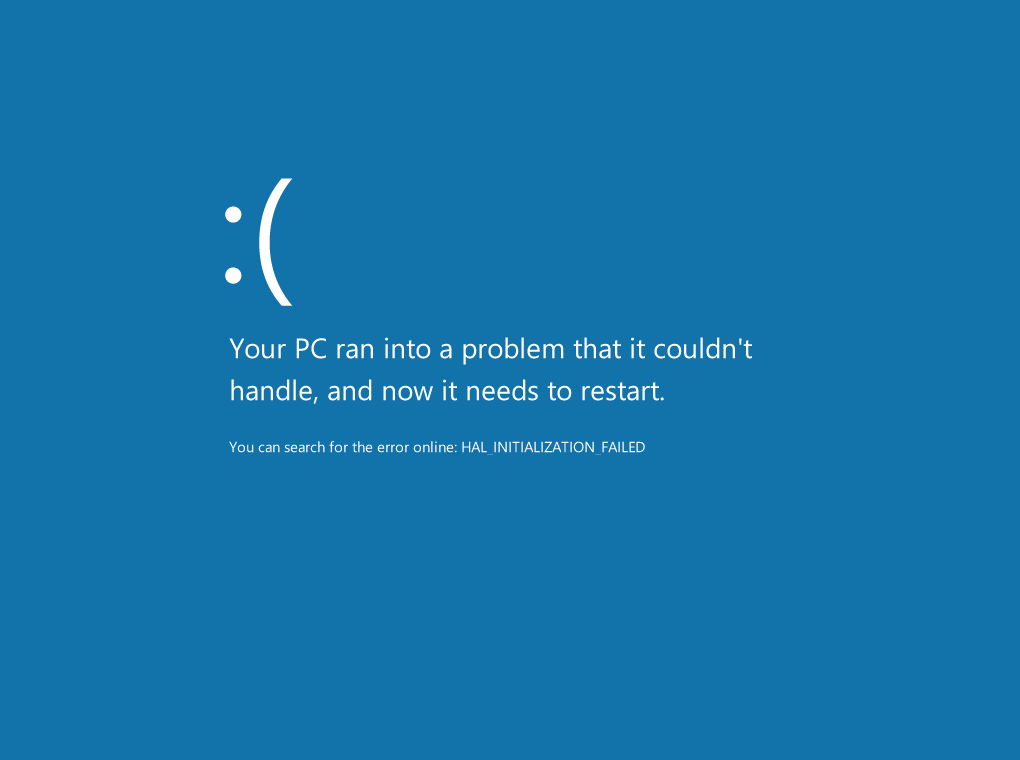Originally published at: Economic Warnings, Nuclear Resurgence, COVID Cancer, and Irish Electoral Woes – Peak Prosperity
Economy
Warning signs are flashing across subprime auto lending, the private credit sector, commercial real estate, and the trucking industry. Meanwhile, stablecoins are seeing massive inflows, and some believe the US may be considering using a gold revaluation as a sort of quantitative easing.
Delinquencies in subprime auto lending have risen to 5% for loans over 90 days past due in the second quarter, a 12% increase from the previous year. Tricolor Holdings filed for bankruptcy amid allegations of double-pledged collateral to major banks, contributing to declines in stocks of companies including Ally Financial and Capital One. The sector, which includes an $80 billion asset-backed securities market, recorded net losses of 9.44% in January, amid high used-car prices and weakening labor markets that have reduced hours and increased job losses for lower-income borrowers. However, broader economic indicators suggest resilience, with strong consumer spending and low unemployment rates reported by outlets like CNBC.
In the $1.7 trillion private credit sector, defaults among mid-sized US companies doubled to 8.1% in 2024 from 3.6% the prior year, with funds issuing covenant waivers and payment-in-kind adjustments to aid borrowers. Corporate bankruptcies have reached levels last seen in 2010, and firms like Blackstone have expanded their restructuring teams. The Boston Fed has expressed concerns about systemic risks from the sector’s rapid growth, citing cases such as First Brands’ bankruptcy, which involved $10 billion in debt and off-balance-sheet liabilities. Some fund managers, however, view these conditions as opportunities for distressed investments.
Office vacancy rates in commercial real estate reached a record 20.7% by mid-2025, while delinquencies in commercial mortgage-backed securities rose to 7.29% overall, including 11.66% for offices. Property reappraisals in cities such as New York and San Francisco have led to sales at 60% or more below prior values, resulting in $400 billion in unrealized losses for banks and $116 billion in distressed assets. Multifamily properties are showing pressure signs amid broader economic slowdowns, though segments like multifamily exhibit relative strength due to sustained demand, as noted by the Financial Times.
The trucking industry is facing depressed freight rates below operating costs, prompting capacity reductions and low orders for Class 8 trucks. Werner Enterprises’ CEO stated that tariffs on Mexican-made trucks, despite USMCA protections, will increase equipment prices, while cargo theft by organized crime groups is raising operational risks. Nearshoring has increased US-Mexico trade, with Werner handling more than 300 daily cross-border loads, aided by Mexico’s favorable demographics. Industry groups like the American Trucking Associations have highlighted potential recovery through technological advancements and improved driver retention.
The US Treasury values its gold holdings at approximately $11 billion on its balance sheet, though market prices exceed $1 trillion. This discrepancy has led to discussions about potential revaluation using quantitative easing mechanisms, which could reportedly add nearly $1 trillion to government funds by adjusting the asset’s value, as seen in past actions by Germany and Italy. Separately, commercial banks buying gold from non-bank entities could expand the money supply in a manner similar to traditional quantitative easing, though analysts note that such revaluations are not uncommon and their economic effects may be moderated by broader fiscal policies, according to reports from Bloomberg and Reuters.
Stablecoin market capitalization hit a record $300 billion, with 46.8% year-to-date growth and rising on-chain activity for payments, remittances, and settlements. Recent minting of $8 billion in USDC on the Solana network suggests liquidity moving into cryptocurrencies, alongside growing adoption in countries like Nigeria and Turkey for daily transactions and integration with systems such as Visa, though analysts caution that regulatory concerns and potential de-pegging risks could temper market stability, as discussed by CoinDesk and the Financial Times.
Energy
US efforts to restart decommissioned nuclear plants include a Microsoft power purchase agreement for Three Mile Island and a Meta deal for an Illinois facility, aimed at meeting data center demands from AI and cloud computing, which are projected to raise power needs by 165% over five years. Challenges encompass hundreds of millions in upgrades for licensing, cybersecurity amid rising threats, rebuilding uranium supply chains, and workforce shortages from retired experts. Policy commitments to triple global nuclear capacity by 2050 are supporting this trend, though grids will need diverse sources like natural gas and renewables for reliability during extended restart periods. Safety evaluations by the Nuclear Regulatory Commission indicate that timelines for restarts may extend due to rigorous compliance requirements, as noted by Reuters.
Meanwhile, private investment is advancing nuclear development via public-private partnerships, with tech companies securing long-term contracts to power data centers and AI amid growing global energy needs. A World Nuclear Association symposium projected investments reaching $2.2 trillion by 2050, though high upfront costs and delays—such as the UK’s Sizewell C project, now estimated at $51.9 billion after doubling—have discouraged some participants. Small modular reactors could achieve 80 GW by 2040 if their costs match those of hydropower and offshore wind, with government support positioned as a national security issue. The International Energy Agency has called for annual investments to double to $120 billion by 2030, stressing improvements in supply chains and financing. Critics, including Greenpeace, argue that renewables like wind and solar offer safer, more cost-effective alternatives to address these challenges.
Switching to oil markets, OPEC+ agreed to raise oil output by 137,000 barrels per day starting in November, matching October’s increase and falling short of earlier speculations exceeding 500,000 barrels. The decision continues the gradual reversal of 1.65 million barrels cut in April 2023, with the group citing stable global economic outlooks and low inventories. Russia reportedly favored the smaller increase due to sanctions, while Saudi Arabia pushed for larger gains to capture market share. Brent crude prices, below $65 per barrel after dropping from yearly highs of $82, could rise by up to $1 on Monday. Some analysts, however, anticipate potential oversupply from rising U.S. production, which may limit price gains, according to the International Energy Agency.
Geopolitics
Russian President Vladimir Putin stated that providing Ukraine with long-range Tomahawk missiles for strikes into Russian territory would end emerging positive trends in US-Russia relations. The missiles have a range of at least 1,500 miles and would reportedly require direct involvement from American specialists, representing a new escalation stage. The statement follows a recent US-Russia summit on Ukraine de-escalation and occurs amid extensions to the New START nuclear treaty, as the US provides Ukraine with long-range targeting assistance and supports daily drone operations deep into Russia. Ukrainian officials, however, have advocated for such missile supplies to enhance defense against Russian advances, according to reports from The Kyiv Independent.
Health
A South Korean study of over 8 million people from 2021 to 2023 found that vaccinated individuals had a 27% higher overall cancer risk one year after vaccination, including 20% for breast, 28% for colorectal, 34% for gastric, 53% for lung, 69% for prostate, and 35% for thyroid cancers. The study reported 20% higher risk for mRNA vaccines, 47% for non-mRNA, and 34% for mixed doses, with boosters associated with further increases, such as 125% for pancreatic cancer. Risks varied by age, sex, and dose number, affecting all groups, and were statistically significant. Experts have criticized the study’s methodology and short follow-up period, noting it does not establish causation, according to fact-checks by Reuters and statements from oncologists in The New York Times.
The US Food and Drug Administration has halted all spice imports from Indonesia’s PT Natural Java Spice after detecting radioactive cesium-137 in a shipment of cloves destined for California. The isotope has also appeared in recent Indonesian shrimp imports and may originate from contaminated scrap metal at industrial sites or shared transport, despite the processing plants being 500 miles apart. No contaminated products have reached the US market, and shrimp imports were removed from shelves as a precaution. Indonesian authorities have stated they are cooperating with investigations and enhancing safety protocols to prevent future incidents, as reported by The Jakarta Post.
European Politics
Conor McGregor has withdrawn from his candidacy for the Irish presidency to spotlight barriers in the nomination process, which requires backing from 20 members of parliament or four local councils. Although other candidates without his background expressed interest, none secured the required support. McGregor has described the system as undemocratic and warned of potential negative impacts on the Irish people if reforms are not enacted. Some political figures argue the endorsement requirements serve to ensure serious candidacies and prevent frivolous entries, as noted by TheJournal.ie.
Sources
Gold QE: Unlocking $1 Trillion from the US Treasury’s Gold Hoard
update of the reserves value in line with today’s prices would unleash roughly 990 billion into the Treasury’s coffers
Credit Cracks Emerge: Subprime Auto Woes Signal Deeper US Economic Strain
Beneath the surface of what’s been a remarkably resilient US economy, a series of small shocks in the world of consumer credit have combined to rock companies that service the most financially vulnerable Americans.
Source | Submitted by Friedrichs_teeth
Putin Warns: Tomahawk Missiles to Ukraine Would Shatter US-Russia Relations
Supplying Tomahawk Missiles To Ukraine Will Destroy US-Russia Relations, Putin Warns
Trucking at a Tipping Point: Werner CEO Warns of “Horrible” Rates, Tariffs, and Theft
“We’re at a tipping point,”
Nuclear Renaissance: Can It Power the AI Data Center Boom?
These two major deals signal a growing trend of hyperscalers embracing nuclear power and driving forward expansive new growth.
OPEC+ Delivers Modest Output Boost, Sparking Oil Price Rally Expectations
Oil Prices Set To Jump After OPEC+ Raises Output By Far Less Than Expected
Stablecoins Hit $300B Milestone: Rocket Fuel for Crypto’s Bull Run
“The $300 billion threshold looks like rocket fuel for the next market cycle.”
The Financial Dung Heap Derby: CRE, Private Credit, and Subprime Auto Speed Toward Collapse
watching the headlines coming out of commercial real estate, private credit and subprime auto over the last week or two — and I’m not certain we don’t have a new leader, or leaders, in the nationally televised Race To The Financial Dung Heap™.
Can Private Investment Ignite a Nuclear Power Renaissance?
Can Private Investment Unlock A New Nuclear Energy Era
FDA Blocks Indonesian Spice Imports Over Radioactive Cesium-137 Contamination
U.S. Food and Drug Administration officials last week blocked import of all spices from PT Natural Java Spice of Indonesia after federal inspectors detected cesium 137 in a shipment of cloves sent to California.
South Korean Study: All COVID Vaccines Linked to 27% Higher Cancer Risk
COVID-19 vaccines and boosters — both mRNA and non-mRNA — pose an increased risk of six types of cancer and a 27% higher risk of cancer overall, according to a recent South Korean study of over 8 million people.
McGregor Steps Aside from Irish Presidential Bid to Expose Undemocratic Ballot Barriers
I didn’t step down, I stepped aside and I’ve done so to highlight even more the undemocratic process that is taking place in Ireland.
In addition to sources submitted by community members, the following were also used in the creation of this report: Bloomberg, Reuters, CNBC, Financial Times, American Trucking Associations, CoinDesk, The Kyiv Independent, Nuclear Regulatory Commission, Greenpeace, International Energy Agency, The Jakarta Post, The New York Times, and TheJournal.ie.



